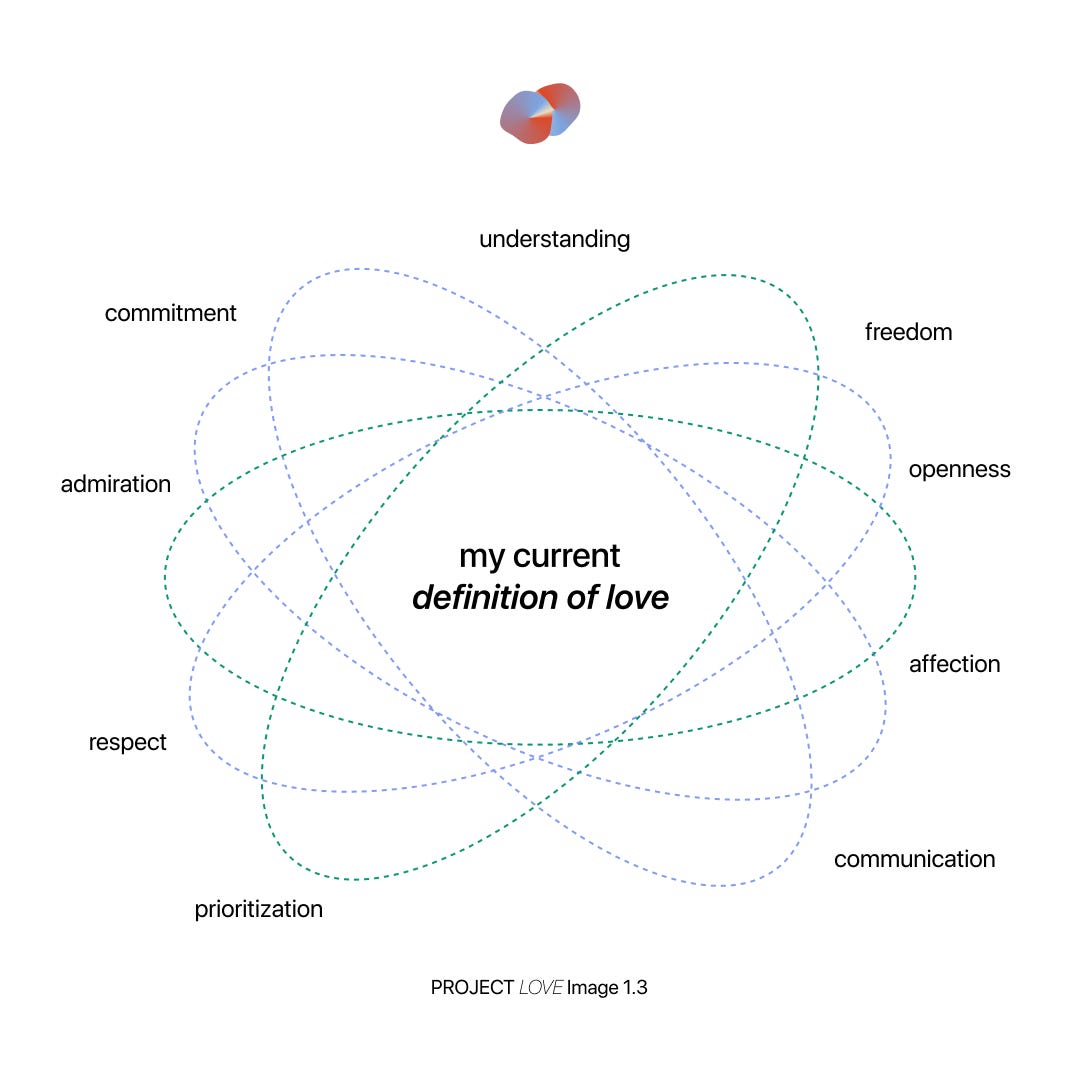Next time I’m beginning a romantic relationship, I plan to ask someone what their definition of love is. Although I know my last relationship was a positive learning experience, I could have saved myself some trouble, if we had been clearer about what our expectations of love were from the very start.
Early on in our relationship, I felt that we were aligned – there was trust, respect, and care for one another. I felt understood by him and could share my whole spectrum of personality traits in a space that felt safe, sacred. I felt like myself, which I believe is one of the most important elements in love.
The challenge was that there was no commitment in our relationship.
To him, love was a free-flow, the way the world’s body is used by everyone, but belongs to no one. He believed he could love multiple people, at the same time, without much accountability in terms of relationship structure. I, too, desire freedom in a relationship. But that freedom doesn’t mean engaging in multiple romantic relationships.
Without the same foundational values, it didn’t feel possible for our relationship to grow. More on this concept of loving multiple people, at the same time, in another post.
My definition of love has also expanded to one of being chosen and prioritized. Though the other elements of love (such as respect and open and honest communication) were present between us, the lack of commitment did not make me feel chosen or prioritized. (Side note! To me, commitment doesn't have to involve marriage or a fancy legal document. It's about a dedication to building a solid relationship, however that relationship may grow and change).
As I was working through this relationship ending, I became curious in understanding how other people define love and what it means to them. I had conversations with friends and strangers, and even asked my Instagram community, posing the question: How would you define love?
The responses I received varied:
Love is unconditional accountability
A commitment to someone’s spiritual flourishing
Naked, in bed, playing NYT Connections after sex
When you idolize someone, and then you learn who they are, but you still feel admiration for that version of them
Feeling seen by someone
Understanding someone and their complexities
An unconditional, “I will be there for you,” no matter what
Taking responsibility for others’ feelings and life experiences
Growing together through ups, downs, and all the in-betweens
There’s a lot of meaning infused into this four-letter word. And we all seem to have different definitions of it.
These meanings are shaped by our background, childhood experiences, and the cultural norms we observe. Media and entertainment fuel our perception too, with fairytales painting notions of love. Personal experiences, attachment styles, values, and beliefs also contribute to shaping our understanding of love. Perhaps the type of love we didn’t receive in childhood also plays a role in what we want love to look like.
In her book, All About Love: New Visions, Bell Hooks writes that schools for love do not exist. Everyone simply assumes that we will know how to love instinctively, and that it means the same thing to each person. This is challenging, because our society accepts that the family is the primary school for our experiences with love. Love therefore becomes dependent on the experiences of our childhood. This also goes back to last week’s post on love and the brain, which you can find here.
Bell Hooks defines love as a mix of various ingredients: “care, affection, recognition, respect, commitment, and trust, as well as honest and open communication.”
In relationships, when we view the foundation of love in the same light, it allows us to speak the same language and therefore create deeper connection (even if our Love Languages, which are the ways in which we express and receive love, differ).
Since we don’t go to love school, and don’t have the same upbringing, most of us will continue to have different definitions of what love means, and those ideas will be expand and change as we ourselves grow.
Though love doesn't require every detail of our definition to match our partner's, a general alignment in core values and understanding of love can create healthier, more fulfilling relationships. Love is complex and multifaceted, with unique interpretations. Having open, empathetic communication about our feelings and expectations can bridge any differences in how we experience and define love and reduce the likelihood of misunderstandings. Sharing our expectations also allows us to identify our compatibility with a potential partner, establish the right boundaries and grow towards a common vision.
Curious what your definition of love is. Has it changed over the years? How does it affect the relationships you choose, or how you choose to show up in relationships?






I so appreciate how this starts and your insights into what love is and isn't, along with what it can be for us.